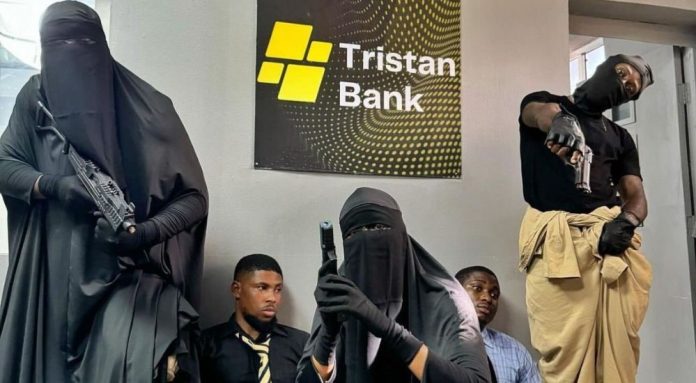The National Film and Video Censors Board (NFVCB), the statutory regulatory agency for film and video works as well as exhibition and distribution in Nigeria, says it has received complaints about an upcoming Nigerian movie “that associated the Hijab, an outfit attributed to Muslim women that symbolises respect, modesty and religious devotion, with negative moral vices.”
Speaking via a Press statement on Friday, the NFVCB states that its findings revealed that the movie has not been released, just as it has not been submitted to the NFVCB for classification as required by law and its mandate.
It may be recalled that the director of the Muslim Rights Concern (MURIC), Ishaq Akintola, in a statement on Thursday, described the film as “satanic.”
While calling on the NFVCB to ban the movie, Akintola claimed that “it is an anti-Muslim film.”
According to him: “An extremely anti-Muslim movie has been released into the Nigerian movie industry. The upcoming film, recently unveiled by Nancy Isime, shows women in purdah brandishing dangerous weapons and robbing banks. It is Islamophobia taken to the highest level. The movie is satanic, repugnant and provocative.”
Continuing, Akintola said, “It is aimed at portraying Muslim women as criminals with a violent proclivity. And capable of inciting the public against Muslim women.
“We believe that it is the handwork of Muslim haters and part of the plot to stop our women from wearing hijab and niqab.
“The plot was hatched a long time ago and its execution began in the schools. This plot was boldly and diligently confronted in Nigerian courts by Muslims until the highest court in the land made a pronouncement on it. This Satanic film is the latest effort in the war against the hijab.
“This hate film is capable of setting Nigeria on fire if urgent action is not taken by relevant authorities. We therefore call on the NFVCB to investigate and place an immediate ban on the coming film.
“To Nigerian Muslims who have inundated our communication channels with voice notes, video clips and other types of messages, please be calm and peaceful. You have spoken loud and clear. Allow the authorities to take necessary action.”
In response, NFVCB said it has been able to reach the movie producers and that it has taken steps to address the concerns raised with the producers.
“We restate that as a classification agency, the NFVCB will not overlook any film or video works, including dramatized short contents (skits) that abuse, denigrate, or undermine religious, cultural and ethnic sensibilities.
“We commit to contributing to the positive transformation of the Nigerian society through classification of films and video works whilst balancing the need to preserve freedom of expression within the law, and limit social, cultural and religious harm caused by films,” NFVCB added.
The National Film and Video Censors Board is the regulatory body set up by Act No.85 of 1993 to regulate the film and video industry in Nigeria.
The Board is empowered by law to classify all films and videos whether imported or produced locally.
NFVCB also must register all films and video outlets across the country and keep a register of such registered outlets among other functions across the country and to keep a register of such registered outlets among other functions.
A niqab is a type of Islamic garment worn by some Muslim women as part of their modesty practices.
It is a face-covering that leaves only the eyes visible, and it is typically worn over the headscarf (hijab) and other traditional clothing.
The niqab covers the entire face, except for the area around the eyes, and it can be paired with other garments like a long dress or abaya.
The choice to wear a niqab varies, based on personal, cultural, or religious beliefs.


